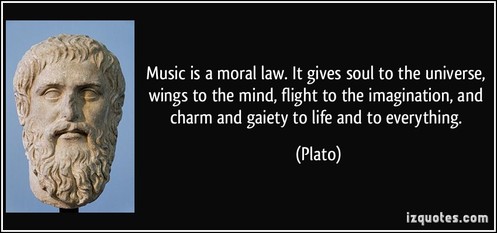🌸
🌸
Music Can Tell a Story
Music Can Tell a Story
Music is love, music is life
Music can tell a story.
Music cheers, music inspires us,
But also brings memories.
What's so special about music?
The music will takes us to another world.
Music soothes our soul
Music can take away our pain
Our life is music.
Maria Luisa Taylor
Music can tell a story.
Music cheers, music inspires us,
But also brings memories.
What's so special about music?
The music will takes us to another world.
Music soothes our soul
Music can take away our pain
Our life is music.
Maria Luisa Taylor
Moonlight Sonata Ludwig van Beethoven / 1770 - 1827
The Emotional Story of the “Moonlight Sonata”
🌸
🌸
🌸
Who did not have in life moments of extreme pain?
Who has never felt, at some moment in life, the desire to give up?
Who has not yet felt lonely, extremely lonely, and had the sensation of having lost all hope?
Not even famous, rich, important people are exempt
from having their moments of solitude and deep bitterness.
It was exactly what happened with one of the most remarkable composers of all times,
Ludwig Van Beethoven, who was born in 1770, in Bonn,
Germany, and died in Vienna, Austria, in 1827.
Beethoven was going through one of these sorrowful, sombre and gloomy periods.
He was very sad and depressed by the death of a German prince,
who was his benefactor and as a second father to him.
The young composer suffered from a great lack of affection.
His father was a drunkard who used to assault him physically.
He died on the streets, due to alcoholism.
His mother died very young. His biological brother never helped him and, on top of it all,
he felt his illness was getting worse.
Symptoms of deafness started to disturb him, leaving him nervous and irritable.
Beethoven could only hear using a kind of horn-shaped trumpet in his ear.
He always carried with him a notebook, where people could write and so communicate with him.
But they did not have patience for this, nor him to read their lips.
Noticing that nobody understood and wanted to help him, Beethoven withdrew into himself and avoided people. Therefore he earned the fame of being a misanthrope.
For all these reasons the composer fell into deep depression.
He even prepared his will, saying that maybe it was better for him to commit suicide.
But as no child of God is forgotten,
the helping hand Beethoven needed came through a blind young woman
who lived in the same boarding house where he had moved to,
and who one night told him, shouting at his ears:
“I would give everything to see the moonlight.”
Listening to her, Beethoven was moved to tears.
After all, he could see! After all, he could compose music and write it in paper!
A strong will to live came back to Beethoven and led him to compose one of the most beautiful pieces of music of all times: “Mondscheinsonate” – “Moonlight Sonata” .
In its main theme, the melody imitates and resembles the slow steps of people,
possibly of Beethoven himself and others,
carrying the coffin of the German prince, his friend, patron and benefactor.
Looking at the silvery moonlit sky, and remembering the blind young woman,
as asking the reasons for the death of his dear friend,
he falls into deep and profound meditation.
Some music scholars say that the notes that repeat themselves, insistently,
in the main theme of the 1o movement of the Sonata,
might be the syllables of the words “Warum? Warum”?
(Why? Why?) or another word in German of similar meaning.
Years after having overcome his sorrow, suffering and pain, came the incomparable “Ode to Joy” from his “Ninthko Symphony”, Beethoven’s magnum opus,
which crowned the life work of this remarkable composer.
He conducted the first performance himself in 1824, and by then being totally deaf,
failed to hear the applause.
One of the soloists gently turned him around, to see the hall full of a wildly cheering, applauding, and hat-waving audience. It is said the “Ode to Joy” expresses Beethoven’s gratitude to life and to God, for not having committed suicide.
And all this thanks to that blind young woman, who inspired in him the desire to translate, in musical notes, a moonlit night: rays of moonlight weaving themselves in the sweet strains of a wondrously beautiful melody.
Using his sensibility, Beethoven, the composer who could not hear, portrayed,
through his beautiful melody, the beauty of a night bathed by the moonlight,
for a girl who could not see it with her physical eyes.
Who did not have in life moments of extreme pain?
Who has never felt, at some moment in life, the desire to give up?
Who has not yet felt lonely, extremely lonely, and had the sensation of having lost all hope?
Not even famous, rich, important people are exempt
from having their moments of solitude and deep bitterness.
It was exactly what happened with one of the most remarkable composers of all times,
Ludwig Van Beethoven, who was born in 1770, in Bonn,
Germany, and died in Vienna, Austria, in 1827.
Beethoven was going through one of these sorrowful, sombre and gloomy periods.
He was very sad and depressed by the death of a German prince,
who was his benefactor and as a second father to him.
The young composer suffered from a great lack of affection.
His father was a drunkard who used to assault him physically.
He died on the streets, due to alcoholism.
His mother died very young. His biological brother never helped him and, on top of it all,
he felt his illness was getting worse.
Symptoms of deafness started to disturb him, leaving him nervous and irritable.
Beethoven could only hear using a kind of horn-shaped trumpet in his ear.
He always carried with him a notebook, where people could write and so communicate with him.
But they did not have patience for this, nor him to read their lips.
Noticing that nobody understood and wanted to help him, Beethoven withdrew into himself and avoided people. Therefore he earned the fame of being a misanthrope.
For all these reasons the composer fell into deep depression.
He even prepared his will, saying that maybe it was better for him to commit suicide.
But as no child of God is forgotten,
the helping hand Beethoven needed came through a blind young woman
who lived in the same boarding house where he had moved to,
and who one night told him, shouting at his ears:
“I would give everything to see the moonlight.”
Listening to her, Beethoven was moved to tears.
After all, he could see! After all, he could compose music and write it in paper!
A strong will to live came back to Beethoven and led him to compose one of the most beautiful pieces of music of all times: “Mondscheinsonate” – “Moonlight Sonata” .
In its main theme, the melody imitates and resembles the slow steps of people,
possibly of Beethoven himself and others,
carrying the coffin of the German prince, his friend, patron and benefactor.
Looking at the silvery moonlit sky, and remembering the blind young woman,
as asking the reasons for the death of his dear friend,
he falls into deep and profound meditation.
Some music scholars say that the notes that repeat themselves, insistently,
in the main theme of the 1o movement of the Sonata,
might be the syllables of the words “Warum? Warum”?
(Why? Why?) or another word in German of similar meaning.
Years after having overcome his sorrow, suffering and pain, came the incomparable “Ode to Joy” from his “Ninthko Symphony”, Beethoven’s magnum opus,
which crowned the life work of this remarkable composer.
He conducted the first performance himself in 1824, and by then being totally deaf,
failed to hear the applause.
One of the soloists gently turned him around, to see the hall full of a wildly cheering, applauding, and hat-waving audience. It is said the “Ode to Joy” expresses Beethoven’s gratitude to life and to God, for not having committed suicide.
And all this thanks to that blind young woman, who inspired in him the desire to translate, in musical notes, a moonlit night: rays of moonlight weaving themselves in the sweet strains of a wondrously beautiful melody.
Using his sensibility, Beethoven, the composer who could not hear, portrayed,
through his beautiful melody, the beauty of a night bathed by the moonlight,
for a girl who could not see it with her physical eyes.
| Ludwig van Beethoven / 1770 - 1827 / The History of the " Moon Sonata" | |
| File Size: | 538 kb |
| File Type: | |
Ingénue /an innocent or unsophisticated young woman
🌸
Music can lift your mood ...
... put the smile back on your face and add immeasurably to your quality of life.
Get serious about listening to music that inspires you.
Build a collection of your favorite pieces and play something
that fills your heart with joy every single day of the week.
Listening to even a few minutes of music every day is a simple
yet exceptionally powerful way to manage your moods and remain at your best.
🌸
Music can lift your mood ...
... put the smile back on your face and add immeasurably to your quality of life.
Get serious about listening to music that inspires you.
Build a collection of your favorite pieces and play something
that fills your heart with joy every single day of the week.
Listening to even a few minutes of music every day is a simple
yet exceptionally powerful way to manage your moods and remain at your best.
🌸
🌸
Lyrics to Anak (english Version) Philippines 1980.
When you were born into this world your mom and dad saw a dream fulfilled
Dream come true; the answer to their prayers
You were to them a special child
You gave 'em joy every time you smiled
Each time you cried, they're at your side to care Child,
you don't know you'll never know how far they'd go to give you all their love can give.
To see you through and God it's true they'd die for you, if they must, to see you here
How many seasons came and went so many years have now been spent for time ran fast and now at last you're strong
Now what has gotten over you you seem to hate your parents too
Do speak out your mind, why do you find them wrong?
Child you don't know you'll never know how far they'd go to give you all their love can give
To see you through and God it's true they'd die for you, if they must, to see you near
And now your path has gone astray
Child you ain't sure what to do or say
You're so alone, no friends are on your side
And child you now break down in tears
Let them drive away your fears
Where must you go, their arms stay open wide
Child you don't know You'll never know how far they'd go to give you all their love can give
To see you through
And God it's true
They'd die for you, if they must, to see you here
Child you don't know
You'll never know how far they'd go to give you all their love can give
To see you through and God it's true they'd die for you, if they must, to see you near.
🌸
Lyrics to Anak (english Version) Philippines 1980.
When you were born into this world your mom and dad saw a dream fulfilled
Dream come true; the answer to their prayers
You were to them a special child
You gave 'em joy every time you smiled
Each time you cried, they're at your side to care Child,
you don't know you'll never know how far they'd go to give you all their love can give.
To see you through and God it's true they'd die for you, if they must, to see you here
How many seasons came and went so many years have now been spent for time ran fast and now at last you're strong
Now what has gotten over you you seem to hate your parents too
Do speak out your mind, why do you find them wrong?
Child you don't know you'll never know how far they'd go to give you all their love can give
To see you through and God it's true they'd die for you, if they must, to see you near
And now your path has gone astray
Child you ain't sure what to do or say
You're so alone, no friends are on your side
And child you now break down in tears
Let them drive away your fears
Where must you go, their arms stay open wide
Child you don't know You'll never know how far they'd go to give you all their love can give
To see you through
And God it's true
They'd die for you, if they must, to see you here
Child you don't know
You'll never know how far they'd go to give you all their love can give
To see you through and God it's true they'd die for you, if they must, to see you near.
🌸
🌸









